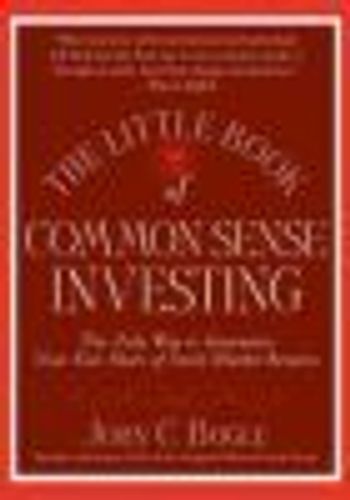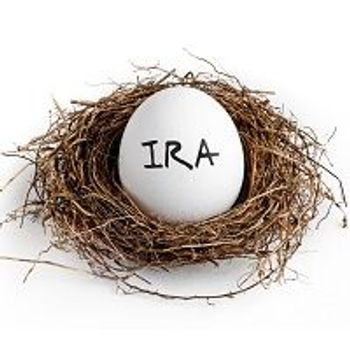
The jury is still out, but some economists are finding hopeful signs in economic trends - like railroads and rhodium - that don't often make the financial headlines.

The jury is still out, but some economists are finding hopeful signs in economic trends - like railroads and rhodium - that don't often make the financial headlines.

Over the next few weeks, your holiday credit card bills will let you know just how much you spent having a good time. Ignoring or delaying payment on those bills could lower your credit score, which could cripple your attempts to get a car loan or a mortgage down the road.

Jolly old Saint Nick managed to drop a load of holiday cheer on Wall Street this year. What's behind this annual outpouring of buying sentiment? Santa Claus theorists have several opinions.

When faced with a complex investment, Wall Street's denizens like to make it sound simple by giving it a cute name. Before you invest your hard-earned cash, it's best to find out what you're investing in.

The IRS recently released its standard mileage rate for calculating the write-off for business use of your car in 2010, and it's significantly lower than in 2009.

As a result of the impending estate tax disappearance, the timing of death has never had such a financial impact. Die before January 1, and anything in your estate over the exemption level of $3.5 million will be taxed at 45%. Die after January 1, and there's no tax at all.

Problems with online bill paying systems often involve bank computer glitches that cause late payments. If the transaction involves a credit card bill, a late payment could not only mean a hefty late fee, but could also lead to a steep rise in the interest rate on the card.

If you're planning to buy a Pontiac, Saturn, or another soon-to-be-extinct brand, consider its five-year resale value which could be as low as 15%.

Variable annuities, which offer investors tax-deferred growth along with a measure of loss protection, haven't protected much as of late. In fact, sales of VAs suffered through a decline that lasted through five consecutive quarters.

If you're still stalking that perfect gift for a friend or colleague who's interested in things financial, books can be a good choice, and there are books aplenty about investing.

Rather than give hidden-fee laden gift cards that expire, think about buying stock. You can do this the old-fashioned way by transferring stocks you own to the person on your gift list, but there are other options that are more tangible – and more fun.

When no-load funds hit the market, load funds had to find a way to compete. That was the birth of B shares, which featured a back-end charge that was levied when the investor sold the shares. Now, a number of fund giants are ditching B shares entirely.

The Center for Disease Control and Prevention recently issued an alert that scammers are using bogus e-mails referring to a non-existent CDC-sponsored vaccination program to gain access to a consumer's personal information.

Interest rates on Uncle Sam's debt have been in the tank for the past six months, with bonds earning minimal interest, but the Treasury Department has recently increased those rates, making savings bonds a more attractive investment.

HSBC Bank, owner of one of the largest vaults in the US, recently told its retail clients to find another place to store their gold bars and coins. Operating on already razor-thin margins, the bank has decided to concentrate on more lucrative institutional clients.

Many states are turning to tax amnesty programs to give their budgets a much-needed shot in the arm. Some tax experts see 10 to 15 states instituting programs next year.

The signs of holiday cheer are all around – bright lights, silver bells, festive decorations, scammers stepping up their efforts to separate the unwary from their cash.

Retail experts are saying that, despite the run-up in prices, the gold in your local jewelry store may be a bargain. If jewelry is on your holiday "to-give" list, they say, it's a good time to buy.

As the economy moves out of the ICU, travel consultants warn that current bargains may be gone soon. If you're planning a getaway, it may be best to start planning and booking now.

The recession has taken its toll on charitable giving, but charitable giving consultants say there are a few ways that you can still donate without putting a major crimp in your wallet.

According to a survey by Bankrate.com, ATM fees cost an average of $2.22 in 2009, up 12.6% over last year. The average ATM surcharge has more than doubled since 1998.

Congress is debating a bill that would extend COBRA subsidies to June 30 and apply it to workers laid off between January 1 and June 30 of next year and allow workers to keep coverage for two years.

According to a recent survey, car-rental fees not only haven't gone down because of the stumbling economy, but they've actually gone up by almost 50% since the credit crisis hit last October.

The financial system is recovering, say the economists, but Washington lawmakers look at consumer sentiment and job losses and see tough times ahead, leading to questions about whether there will be another round of stimulus spending.

Estate planners are wrestling with the complexities involved with a possible estate tax repeal. Calculating the tax basis if it is repealed will be much more difficult, compounded by a short time frame.

In 2010, upper-income taxpayers will, for the first time, be able to convert their traditional IRAs to a Roth IRA and reap the Roth’s tax advantages. Financial advisors caution, however, that you should convert only if you can afford to pay any taxes incurred from current income.

Tax exemption is the foremost reason municipal bonds remain attractive to investors, which will become more rewarding if, as expected, the Obama administration raises taxes.

Where once airline miles expired if they weren’t used after two or three years, most US airlines will now wipe out an entire miles account if it doesn’t show any activity within a certain time period. The grace period varies by airline, with some cancelling accounts after just 12 months of inactivity.

ING Direct has been ordered by its homeland Dutch government to cut loose its US operations as a prerequisite to getting government aid. The potential divestiture leaves millions of ING customers with questions about the fate of their deposits and mortgages.

Donating stock and cash to your favorite charities can get you tangled up in a tax mess, so if you're in a giving mood, look to a donor-advised fund which can be set up to pay out years after your death.